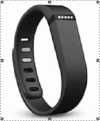ACTonHEALTH study protocol: promoting psychological flexibility with activity tracker and mHealth tools to foster healthful lifestyle for obesity and other chronic health conditions
- PMID: 30486868
- PMCID: PMC6262958
- DOI: 10.1186/s13063-018-2968-x
ACTonHEALTH study protocol: promoting psychological flexibility with activity tracker and mHealth tools to foster healthful lifestyle for obesity and other chronic health conditions
Abstract
Background: Obesity and the state of being overweight are increasing steadily and becoming a global epidemic. Recent research reports 64% of the adult population as overweight in Europe and the USA. The social and economic impacts are increasing, and most of the rehabilitation programs, while effective in the short term, do not produce long-lasting results. An explanatory model from a behavioral perspective can describe the phenomena with the lack of sources of reinforcement related to healthful habits in a daily life context.
Methods/design: A randomized clinical trial combining single-subject studies and a four-arm group design will be conducted to compare the effect of the current standard in obesity treatment to Acceptance and Commitment Therapy (ACT) and wearable technology at different times, before starting intervention, at the end, and at follow-up visits of 3, 6, and 12 months measuring changes over time of physical activity and psychological well-being.
Discussion: The goal of this project, combining ACT and wearable technology, is to develop an effective intervention, efficient and sustainable, which even after discharge can provide adequate contingencies of reinforcement in the natural environment, integrating systematic measurements, continuous feedback, and individualized, values-based objectives. The intervention is aimed to provide a contingent reinforcement for healthful behaviors instead of reinforcing only the achievement of a significant weight loss. The aim of the project, combining Acceptance and Commitment Therapy and Wearable Technology, is to develop an effective, efficient and sustainable intervention able to provide a contingent reinforcement for healthy behaviors. The intervention is aimed to promote adequate healthy behaviors in the natural environment, integrating systematic measurements, continuous feedback and individualized values-based objectives, instead of reinforcing only the achievement of a significant weight loss.
Trial registration: ClinicalTrials.gov, NCT03351712 . Registered on 24 November 2017.
Keywords: Acceptance and Commitment Therapy - ACT; Activity trackers; Behavior modification; Chronic health condition; Health promotion; Multiple-baseline single-subject design; Obesity; Psychological flexibility; Randomized clinical trial; Wearable.
Conflict of interest statement
Ethics approval and consent to participate
Ethical approval for this trial was obtained from the Ethics Committee of “Istituto Auxologico Italiano” (V.0.4 30-05-2017). The study personnel and the Ethics Committee will ensure that the study is conducted within appropriate professional ethical guidelines and that Good Clinical Practice guidelines are observed. All participants provide written informed consent before participating in the trial or extension study.
Consent for publication
Not applicable.
Competing interests
The authors declare that they have no competing interests.
Publisher’s Note
Springer Nature remains neutral with regard to jurisdictional claims in published maps and institutional affiliations.




